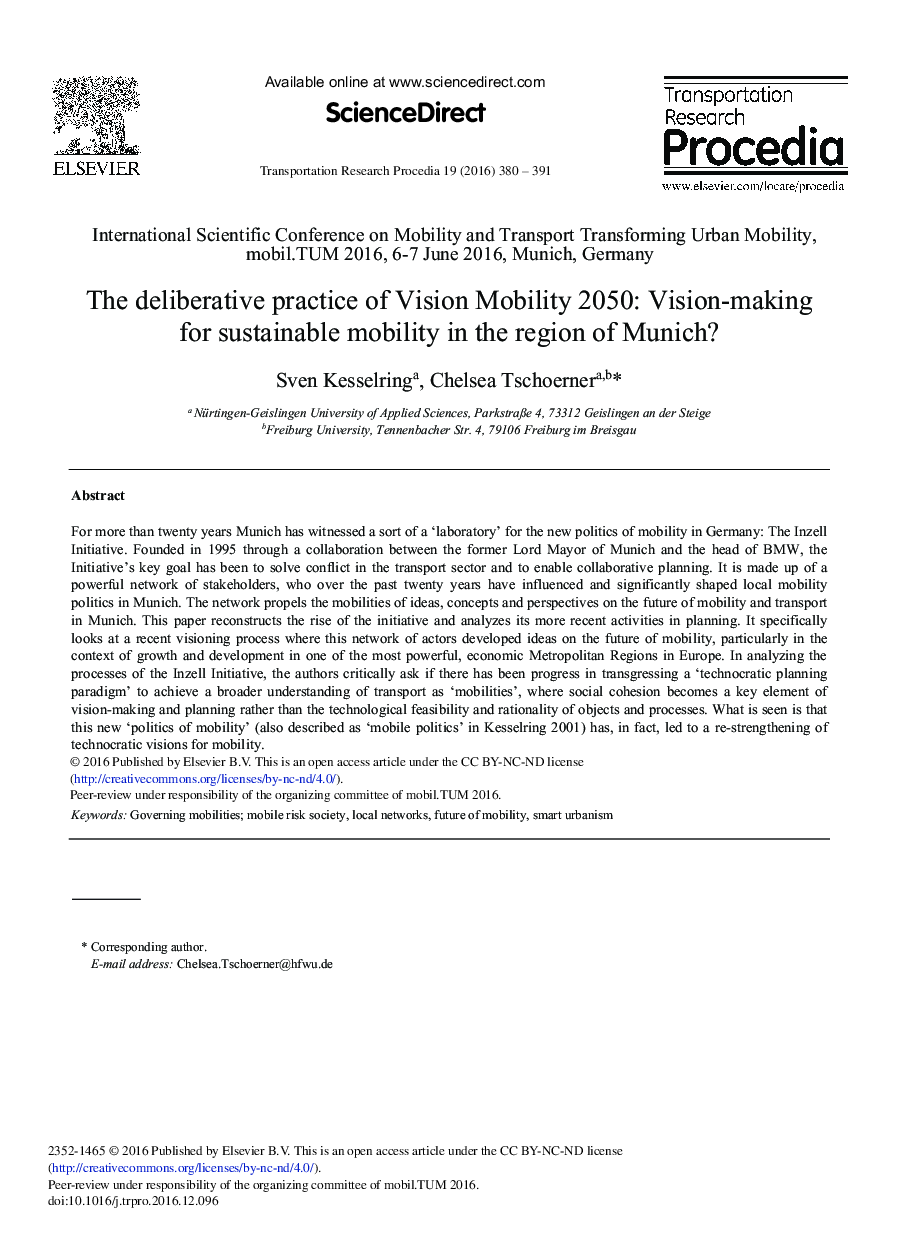| Article ID | Journal | Published Year | Pages | File Type |
|---|---|---|---|---|
| 5125489 | Transportation Research Procedia | 2016 | 12 Pages |
For more than twenty years Munich has witnessed a sort of a 'laboratory' for the new politics of mobility in Germany: The Inzell Initiative. Founded in 1995 through a collaboration between the former Lord Mayor of Munich and the head of BMW, the Initiative's key goal has been to solve conflict in the transport sector and to enable collaborative planning. It is made up of a powerful network of stakeholders, who over the past twenty years have influenced and significantly shaped local mobility politics in Munich. The network propels the mobilities of ideas, concepts and perspectives on the future of mobility and transport in Munich. This paper reconstructs the rise of the initiative and analyzes its more recent activities in planning. It specifically looks at a recent visioning process where this network of actors developed ideas on the future of mobility, particularly in the context of growth and development in one of the most powerful, economic Metropolitan Regions in Europe. In analyzing the processes of the Inzell Initiative, the authors critically ask if there has been progress in transgressing a 'technocratic planning paradigm' to achieve a broader understanding of transport as 'mobilities', where social cohesion becomes a key element of vision-making and planning rather than the technological feasibility and rationality of objects and processes. What is seen is that this new 'politics of mobility' (also described as 'mobile politics' in Kesselring, 2001) has, in fact, led to a re-strengthening of technocratic visions for mobility.
